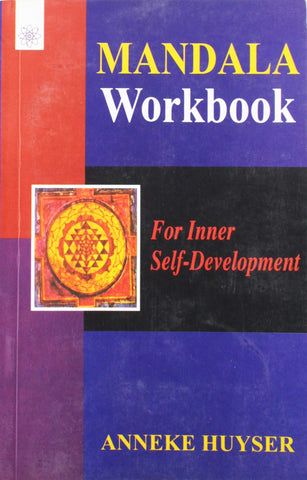Your cart is empty now.
In the recent, burgeoning discourse on Buddhist thought and cognitive science, premodern Buddhists are sometimes characterized as veritable “mind scientists” whose insights anticipate modern research on the brain and mind. Aiming to complicate this story, Dan Arnold confronts a significant obstacle to popular attempts at harmonizing classical Buddhist and modern scientific thought: since most Indian Buddhists believe that the mental continuum is uninterrupted by death (its continuity is what Buddhists mean by “rebirth”), they would have no truck with claims that everything about the mental is explicable with reference to brain events. Yet despite this significant divergence, a predominant stream of Indian Buddhist thought, associated with the seventh-century thinker Dharmakirti, turns out to be vulnerable to arguments modern philosophers have levelled against physicalism.
By characterizing the philosophical problems commonly faced by Dharmakirti and contemporary philosophers such as Jerry Fodor and Daniel Dennett, Arnold seeks to advance an understanding of both first-millennium Indian arguments and contemporary debates in the philosophy of mind. The issues centre on what modern philosophers have called intentionality—the fact that the mind can be about (or represent or mean) other things. Tracing an account of intentionality through Kant, Wilfrid Sellars, and John McDowell, Arnold argues that intentionality cannot, in principle, be explained in causal terms. Elaborating some of Dharmakirti’s central commitments (chiefly his apoha theory of meaning and his account of self-awareness), Arnold shows that despite Dharmakirti’s interest in refuting physicalism, his causal explanations of the mental mean that modern arguments from intentionality cut as much against his project as they do against physicalist philosophies of mind. This is evident in the arguments of some of Dharmakirti’s contemporaneous Indian critics (proponents of the orthodox Brahmanical Mimamsa school as well as fellow Buddhists from the Madhyamaka school of thought), whose critiques exemplify the same logic as modern arguments from intentionality. Arnold’s complex study shows that seemingly arcane arguments among first-millennium Indian thinkers illuminate matters still very much at issue among contemporary philosophers.
Dan Arnold is an associate professor of philosophy of religions at the University of Chicago Divinity School, where he also received his PhD. His first book, Buddhists, Brahmins, and Belief: Epistemology in South Asian Philosophy of Religion, won an American Academy of Religion Award for Excellence in the Study of Religion
The New York Times columnist David Brooks has ventured, notwithstanding the current popularity of books like Richard Dawkins's The God Delusion, that a new wave of cognitive-scientific research on religion may lead not too rampant atheism but to "what you might call neural Buddhism," Brooks's point was that "the real challenge" for theists was likely to come not so much from the avowedly atheistic works of Dawkins and the like as "from scientists whose beliefs overlap a bit with Buddhism." He seems to have meant that cognitive-scientific research supports such characteristically Buddhist beliefs as that (Brooks says) "the self is not a fixed entity but a dynamic process of relationships," and he worries that such research thus encourages "new movements that emphasize self-transcendence but put little stock in divine law or revelation."
Brooks's column occasioned much reflection on the religious studies blog "The Immanent Frame," where scholars noted (among other things) that the assimilation of Buddhism to science represents a century-old apologetic strategy characteristic of modern Buddhism" and that the revolutionary character of cognitive-scientific explanation has perhaps been overstated. Both points are important, but this book will focus on variations on the second one. Here, I want to look at what was arguably the dominant trajectory of Indian Buddhist philosophy-that stemmed from Dharmakirti (c. 600-660 C.E.) through the lens of central issues in contemporary philosophy of mind. I want to suggest that there are indeed important respects in which Dharmakirti's project is akin to those of contemporary cognitive-scientific philosophers and that this is so much the worse for Dharmakirti. My thought is that we can learn much, both about Dharmakirti and about contemporary philosophy of mind, by appreciating that (and how) some of Dharmakirti's central positions are vulnerable to arguments that also have been pressed against the kind of physicalist philosophy of mind recently informed by work in the cognitive sciences.
It should be emphasized up front that Dharmakirti is a particularly difficult thinker; he takes on intrinsically complex and elusive philosophical topics, and his works are, to an even greater extent than is typical of first-millennium Sanskritic philosophers, at once dense and opaquely elliptical, and thus it is unusually difficult to feel confident that one has definitively understood his thoughts on any subject. Dharmakirti surely admits of various readings, and it would be foolhardy to claim that, by suggesting some respects in which he may be vulnerable to certain arguments, his philosophical project has been exhaustively considered. The present engagement with his thought, however, is animated not only by my sense that we can get some traction on his project by characterizing it as susceptible to certain modern arguments but also by my desire to make the arguments of some of his classical Indian critics seem more interesting than is sometimes appreciated.
In reading Dharmakirti as I do, then, I am motivated partly by my sense that there are profound philosophical intuitions to be elaborated along lines suggested by some of his Indian critics and particularly by some proponents of the Brahmanical Purva Mimamsa and the Buddhist Madhyamaka schools of thought. I thus hope to reconstruct the arguments of these other Indian philosophers, too, in terms suggested by modern and contemporary philosophical debate. My aims will have been largely fulfilled if we gain some clarity on what may have been at issue among these thinkers-some- the thing I hope to achieve in part by showing that the seemingly arcane points at stake for these first-millennium Indian philosophers turn out still to be debated among contemporary philosophers.
I can introduce some of the issues that will come into play with reference to another item from the New York Times: a 2005 story concerning a talk by the Dalai Lama at an annual meeting of the Society for Neuroscience. Some five hundred brain researchers, it seems, had signed a petition calling for the talk's cancellation, saying it would "highlight a subject with largely unsubstantiated claims," and that it "compromised scientific rigour and objectivity," The Times article centred on debates internal to the scientific community-debates, for example, about whether scientific objectivity is compromised by the fact that some scholars engaged in this research are themselves practitioners of Buddhist meditation, and about what kinds of phenomena will admit of properly scientific study. Regarding the latter point, petition signatory Zvani Rossetti is reported to have said that "neuro-science more than other disciplines is the science at the interface between modern philosophy and science."
While Rossetti may be right, it is tendentious to conclude from this that (as he added in questioning the Dalai Lama's talk) "no opportunity should be given to anybody to use neuroscience for supporting transcendent views of the world." Depending, perhaps, on just what "transcendent views of the world" means, this arguably begs one of the most basic questions in contemporary philosophy of mind-the question whether fundamental issues in the philosophy of mind are finally empirical, or whether instead they are (and there's a range of options here) metaphysical, transcendental, logical, or conceptual. Impressed by the recently enormous advances in the scientific understanding of the brain (particularly those advances informed by research in computer science and AI), philosophers such as Jerry Fodor and Daniel Dennett take the questions at issue to be finally empirical and thus take it that the findings of empirical research in the cognitive sciences might answer the basic questions of philosophy of mind, which, we will see, chiefly centre for these philosophers on the question of mental causation. What cognitive-scientific research provides, on this view, just is an account of the mind. Against this, philosophers such as John McDowell take the basic issues in the philosophy of mind to be (in a sense we shall consider) transcendental; for McDowell, someone like Dennett offers "what may be an enabling explanation of consciousness, but not a constitutive one .... We lack an account of what [consciousness] is, even if we have an account of what enables it to be present" (1998a, 357). An account of some of the enabling conditions of the mental, in other words, is not to be confused with an account of what the mental is-though it's a fair question whether anything could count as an instance of the latter.
In light of this divide among contemporary philosophers of mind, it's revealing that Buddhist thought should have come to figure so prominently in cognitive-scientific discourse; David Brooks is far from alone in taking Buddhist thinkers and cognitive-scientifically inclined philosophers as philosophical fellow travellers. This makes sense insofar as Buddhist thinkers are virtually defined as such by their upholding the "without self" (anatma) doctrine; surely nothing could be more anti-Cartesian than to urge (as Buddhists do in elaborating this idea) that every moment of experience can be shown to depend upon a host of causal factors, none of which is what we "really" are. Many Buddhist philosophers thus urged a broadly reductionist account of persons, according to which we are not entitled to infer that our episodic cognitions and experiences must be the states of an enduring "self"; rather, only the particular and momentary causes themselves are to be judged finally real. Elaborating on what he took to be the entailments of this idea, Dharmakirti influentially said that "whatever has the capacity for causal efficacy is ultimately existent (paramarthasat); everything else is just conventionally existent." Surely, a reductionist account that thus privileges causal explanation could be taken to complement a characteristically cognitive-scientific project in the philosophy of mind.
Pursuing this thought, Mark Siderits asks (in the subtitle of a recent article): "Is the Eightfold Path a Program?" (2001). That is, can characteristically Buddhist accounts of the person be harmonized particularly with those cognitive-scientific projects that, informed by the availability of the computer model, take thought to be somehow "computational"? Among other things, this amounts to the question of whether the basic Buddhist commitment to selflessness might be compatible with physicalism. For, as we will see in Chapter 2, what computational accounts of thought may most significant advance is broadly physicalist explanations of the mental explanations, that is, according to which everything about the mental can be finally explained in terms of particular goings-on in the brain. Whether Buddhist thought is compatible with such an account (which Siderits calls "techno-physicalism") is a pressing question insofar as contemporary techno-physicalist accounts are, Siderits holds, "more difficult to resist" than earlier versions of physicalism (2001, 307). Siderits proposes that the basic Buddhist project is finally reconcilable with cognitive-scientific physicalism.
There is surely a reason to suppose that Buddhist thought, particularly insofar as it centrally involves causal explanation, might thus be compatible with cognitive-scientific accounts. There remains, however, a significant obstacle to the view that Buddhist thinkers elaborated a position that is uniquely compatible with scientific understanding: while cognitive-scientific accounts of the mind are generally physicalist in character, Buddhist philosophers are emphatically not physicalists.
| Acknowledgements | XI | |
| Introduction | 1 | |
| neural Buddhism: Cognitive Science and the Philosophy of Dharmakirti | 1 | |
| Intentionality, the Status of Universals, and the Problems with Cognitivism | 6 | |
| Plan of the Book | 14 | |
| 1 | Dharmakirti's Proof of Rebirth: A Dualist Account of the Causes of Cognition | 19-40 |
| 2 | The Cognitive-Scientific Revolution: Computationalism and the Problem of Mental Causation | 48-75 |
| 3 | Responsiveness to Reasons as Such: A Kantain Account of Intentionality | 81-113 |
| 4 | The Apoha Doctrine: Dharmakirti's Account of Mental Content | 116-152 |
| 5 | The Svasamvitti Doctrine: Dharmakirti's "Methodological Solipsism" | 158-194 |
| 6 | Indian Arguments from Practical Reason: Mimamsakas and Madhyamikas Contra Cognitivism | 199-229 |
| Concluding Reflections: Religious Studies and Philosophy of Mind | 236 | |
| Notes | 245 | |
| References | 281 | |
| Index | 297 |

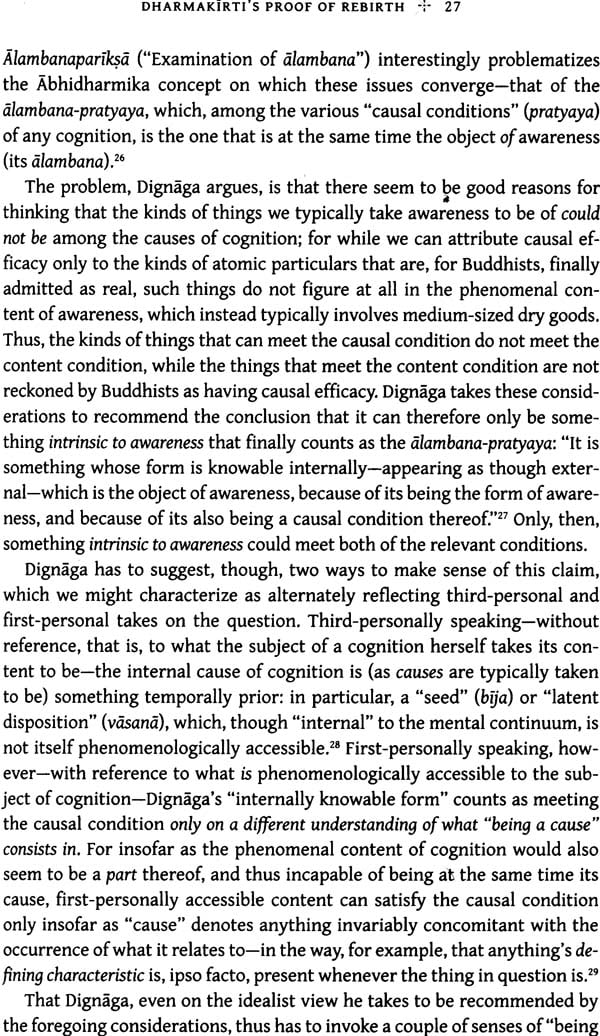
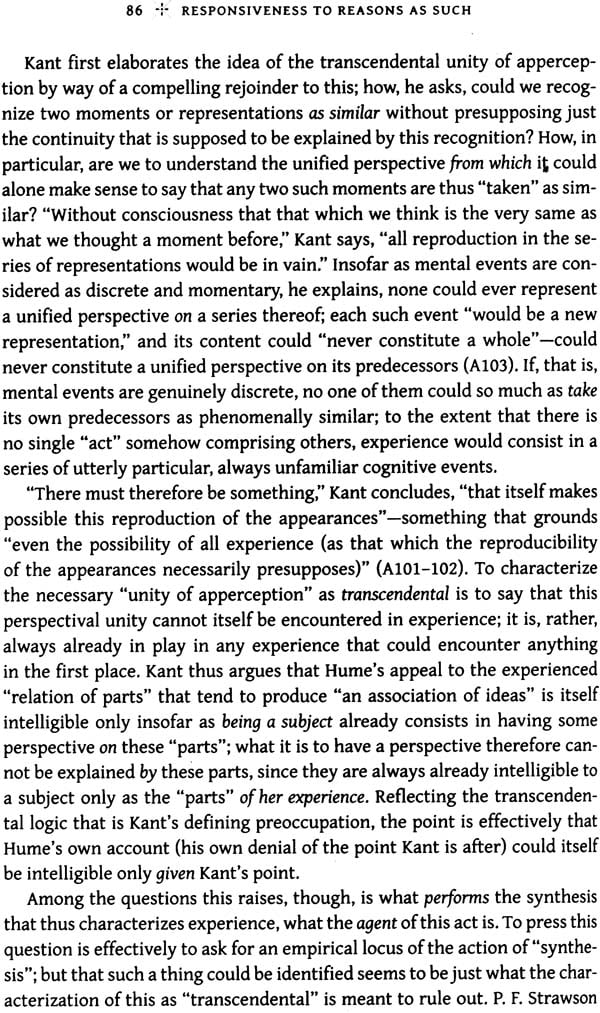
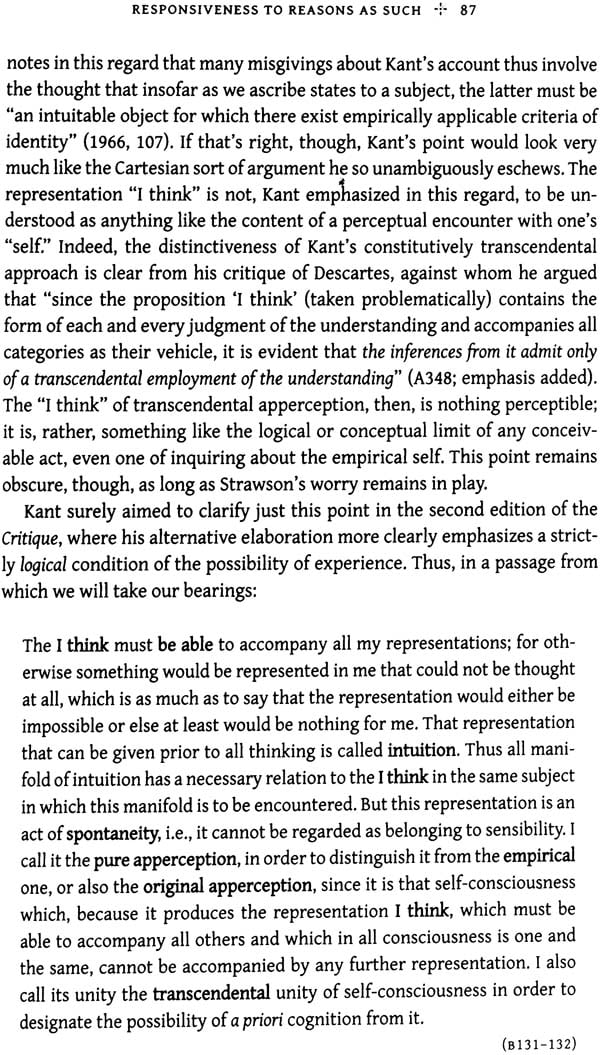
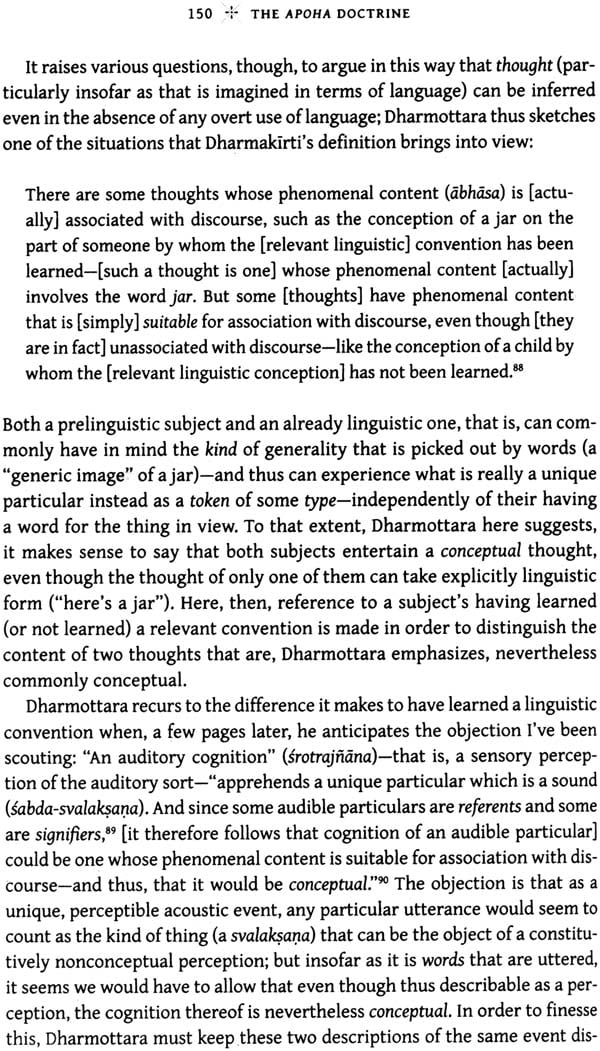
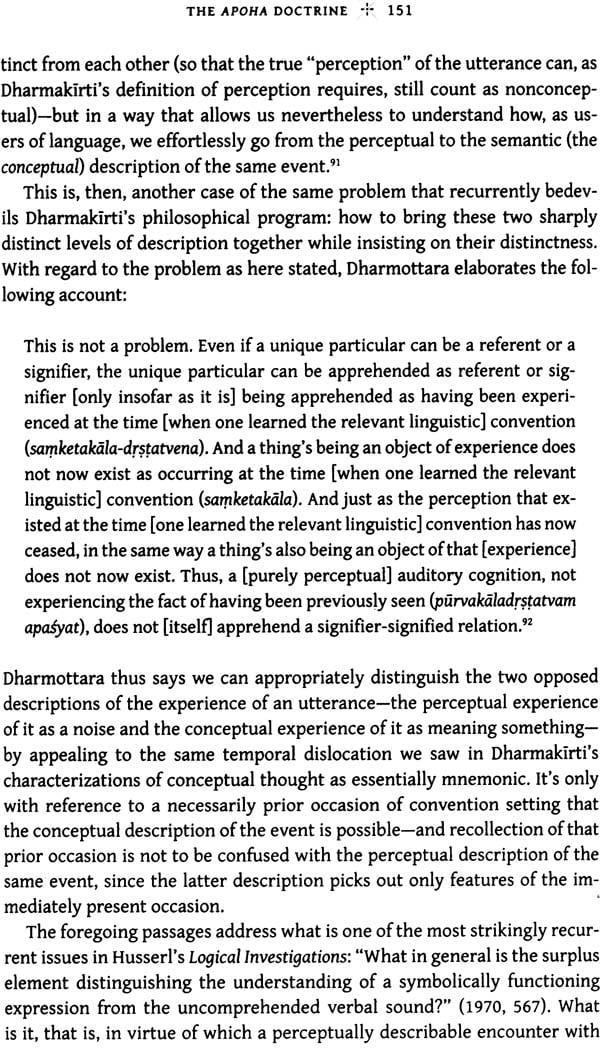
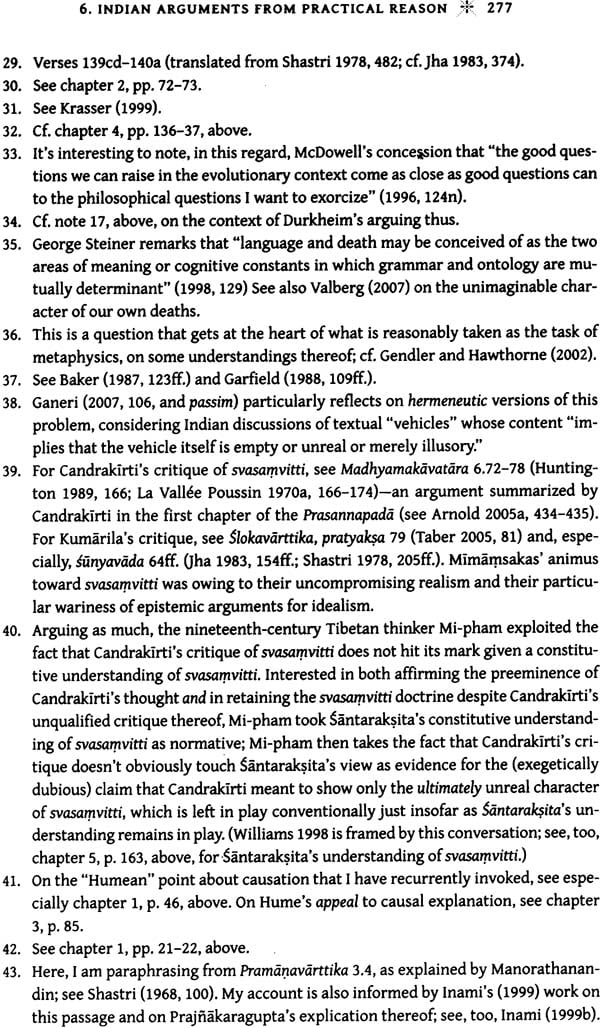
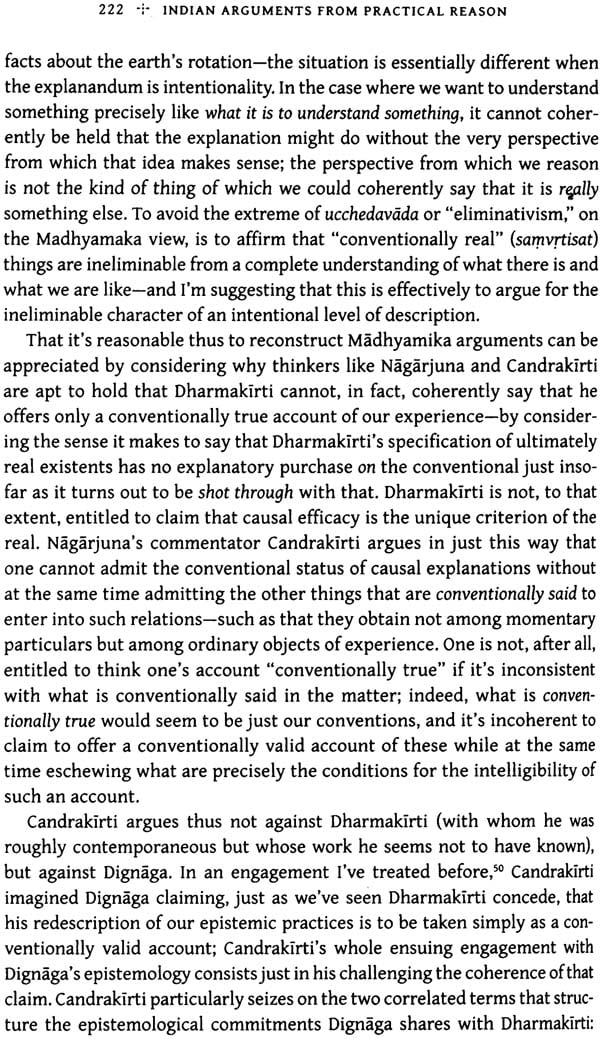
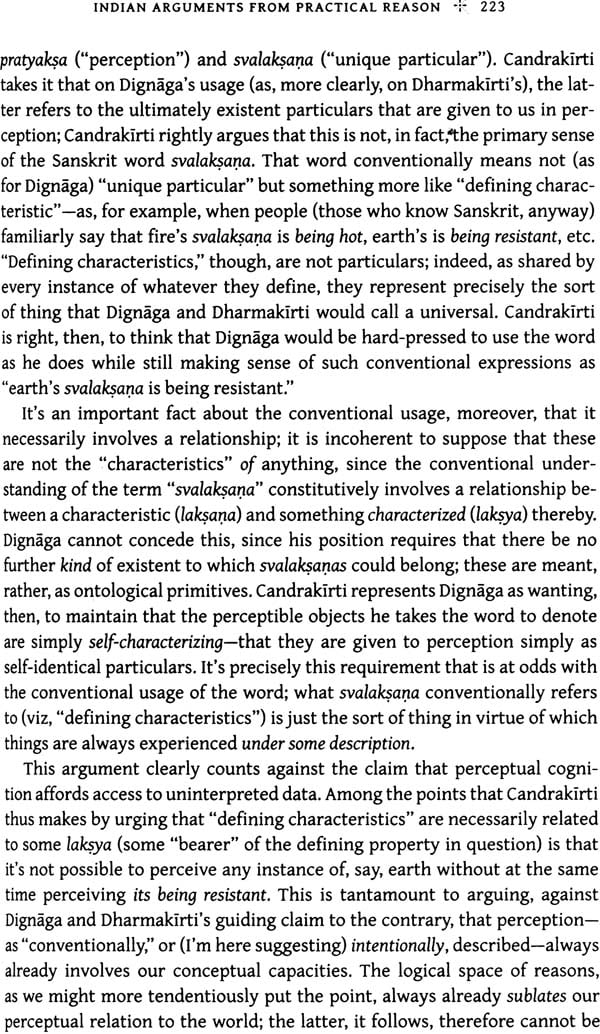
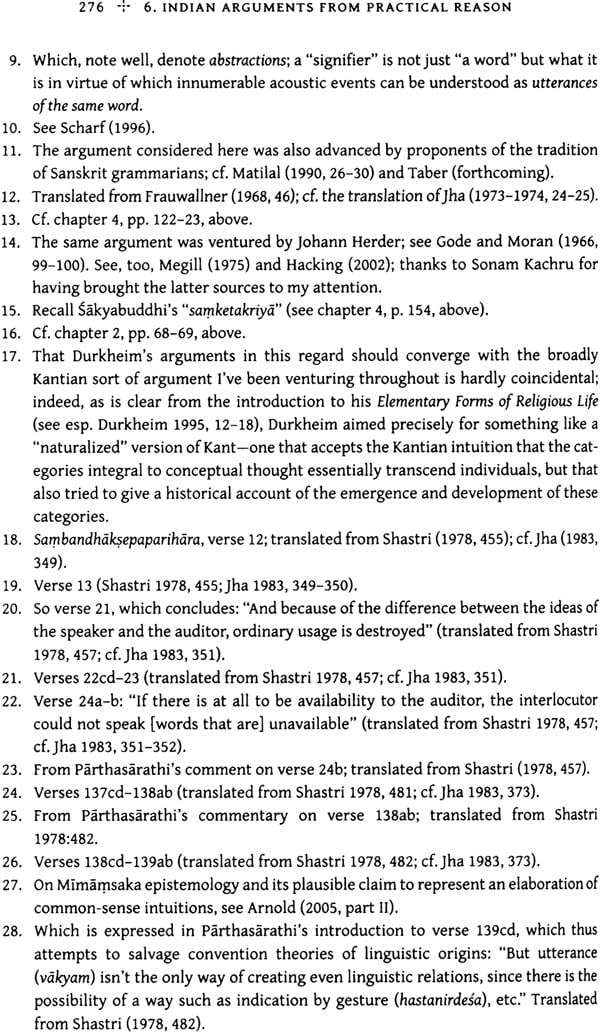
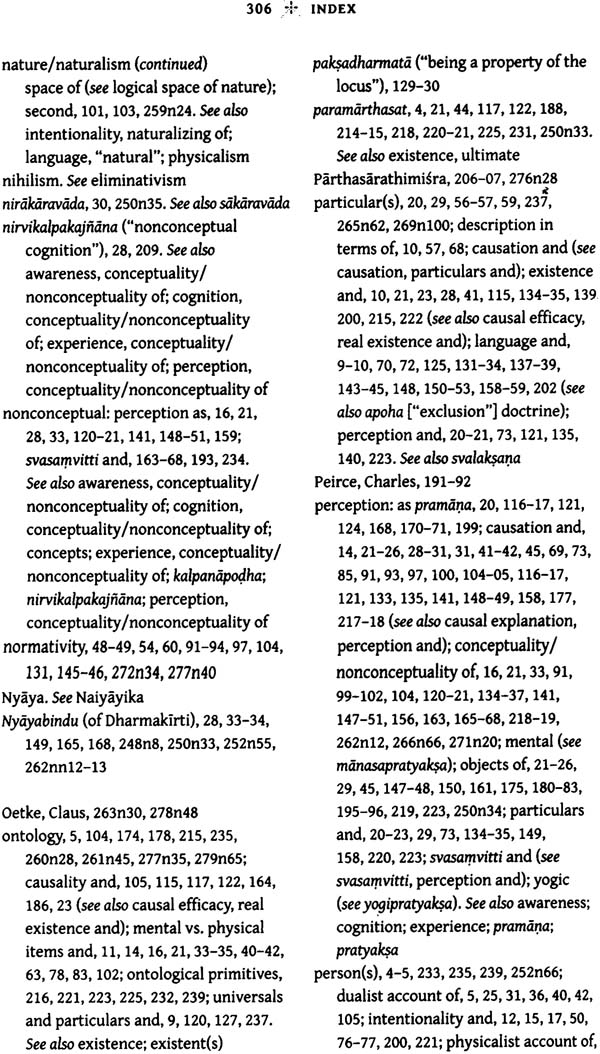
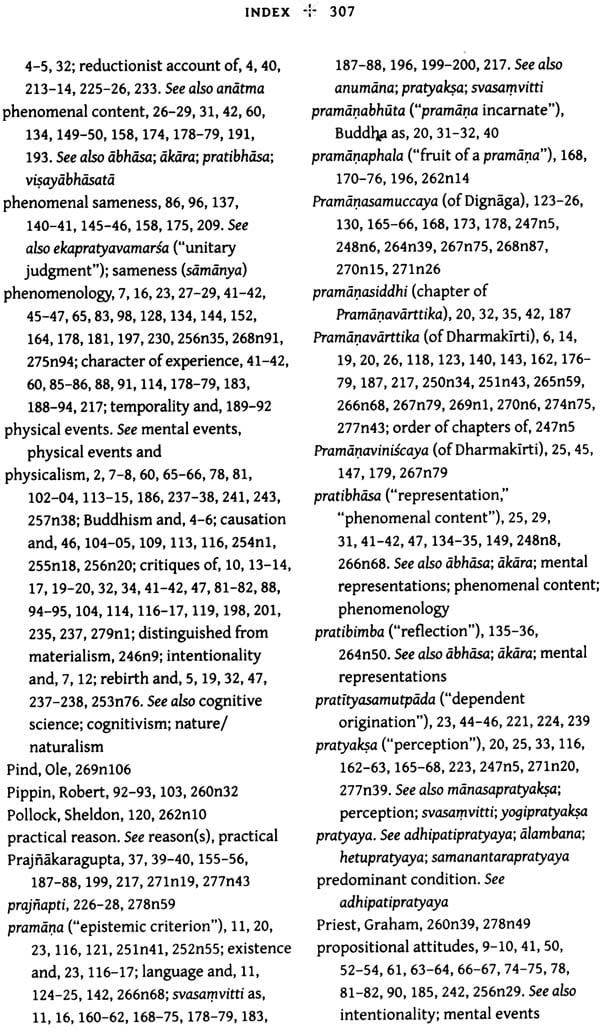
Delivery and Shipping Policy
- INTERNATIONAL SHIPPING
- Rs.1000-1100/kg
- ESTD. Delivery Time: 2-3 weeks (depending on location)
- Bubble Wrapped with Extra Padding
- NATIONAL SHIPPING
- NCR: Rs. 30/half kg
- Standard: Rs. 80/half kg
- Express shipments also available on Request
- ESTD. Delivery Time: Ranging from 1-4 days up to 7 business days (Depending on your choice of Delivery)
- TRACKING
- All orders; national or international, will be provided with a Tracking ID to check the status of their respective orders
- Depending on the Shipping Service, Tracking ID may be used on their respective tracking portals
Frequently Asked Questions (FAQs)
Domestic Shipping: 3-4 Days (after shipping)
International Shipping: 1-2 weeks (based on your location)
You will receive an email once your order has been shipped or you can email us if you didn't receive tracking details (info@mlbd.co.in)
Every book that we sell is the latest edition except all the rare books
Yes, we do provide free shipping, only on domestic orders (within India) above Rs.1500



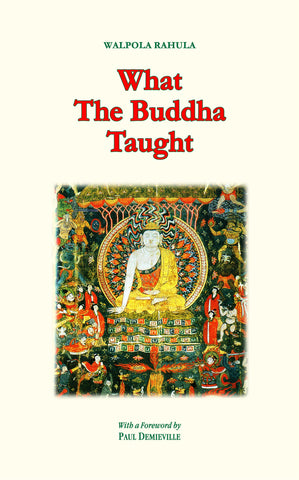

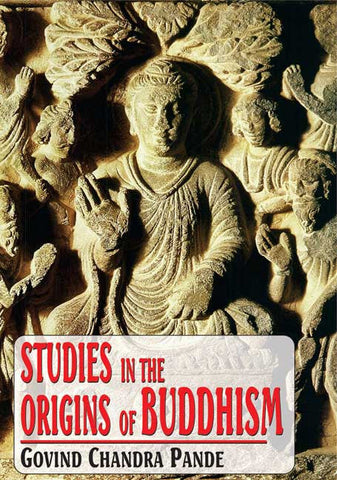
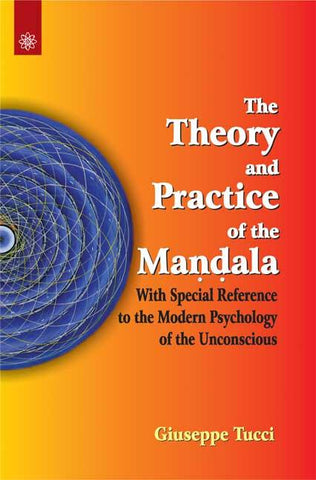
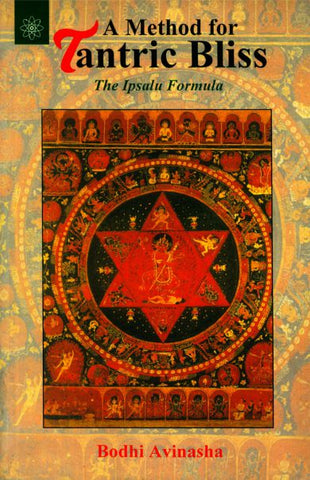

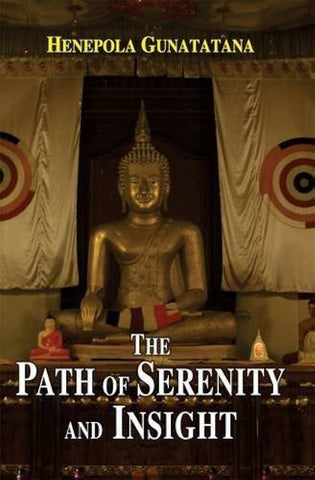
![The Rishukyo [Buddhica Britannica Vol.3]: The Sino-Japanese Tantric Prajnaparamita in 150 Verses (Amoghavajra's Version)](http://www.motilalbanarsidass.com/cdn/shop/products/RISHUKYO_large.jpg?v=1675417651)
